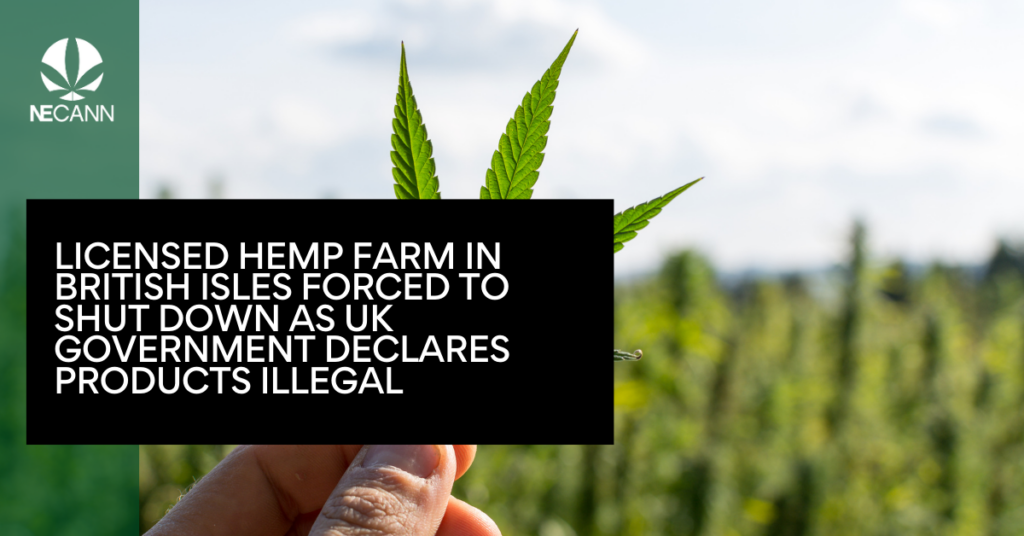Jersey Hemp, the sole licensed hemp farm in the British Isles, has been compelled to cease operations after the United Kingdom Home Office declared its products illegal. The closure has resulted in significant job losses and suspended sales and cultivation activities. The UK government’s decision came after the discovery of THC, a controlled cannabinoid, in Jersey Hemp’s products, leading to restrictions on export into the UK.
A spokesperson from the Home Office clarified that an import license is mandatory for the importation of controlled drugs into the UK. While CBD in its pure form is not considered a controlled drug, products containing THC or other controlled cannabinoids are subject to regulation.
David Ryan and Blair Jones, co-owners of Jersey Hemp, expressed their frustration and sadness in an interview with the BBC, highlighting the devastating impact on their company. They emphasized that the situation has forced them to consider legal action against both the UK and Jersey governments.
In response to the situation, Deputy Kirsten Morel, Minister for Economic Development, Tourism, Sport and Culture, and Deputy Karen Wilson, Minister for Health and Social Services, issued a joint statement affirming the government’s commitment to supporting the cannabis cultivation industry. They acknowledged Jersey Hemp’s discussions with HM Government regarding exports to the UK but refrained from speculating on the outcome. The statement emphasized that all businesses exporting cannabis products from Jersey must comply with the relevant legislation in the destination jurisdiction.
The closure of Jersey Hemp underscores the challenges faced by companies operating in the evolving regulatory landscape surrounding cannabis and CBD products. As the industry continues to expand, it is crucial for businesses to navigate the complex regulatory frameworks of various jurisdictions to ensure compliance and avoid adverse consequences.
The outcome of Jersey Hemp’s legal actions against the UK and Jersey governments remains uncertain, leaving the future of the licensed hemp farm and its employees in limbo. The case also highlights the need for ongoing dialogue and collaboration between industry stakeholders, government authorities, and regulatory bodies to establish clear guidelines and facilitate a sustainable and compliant cannabis industry.




